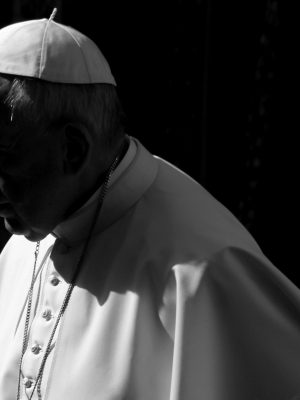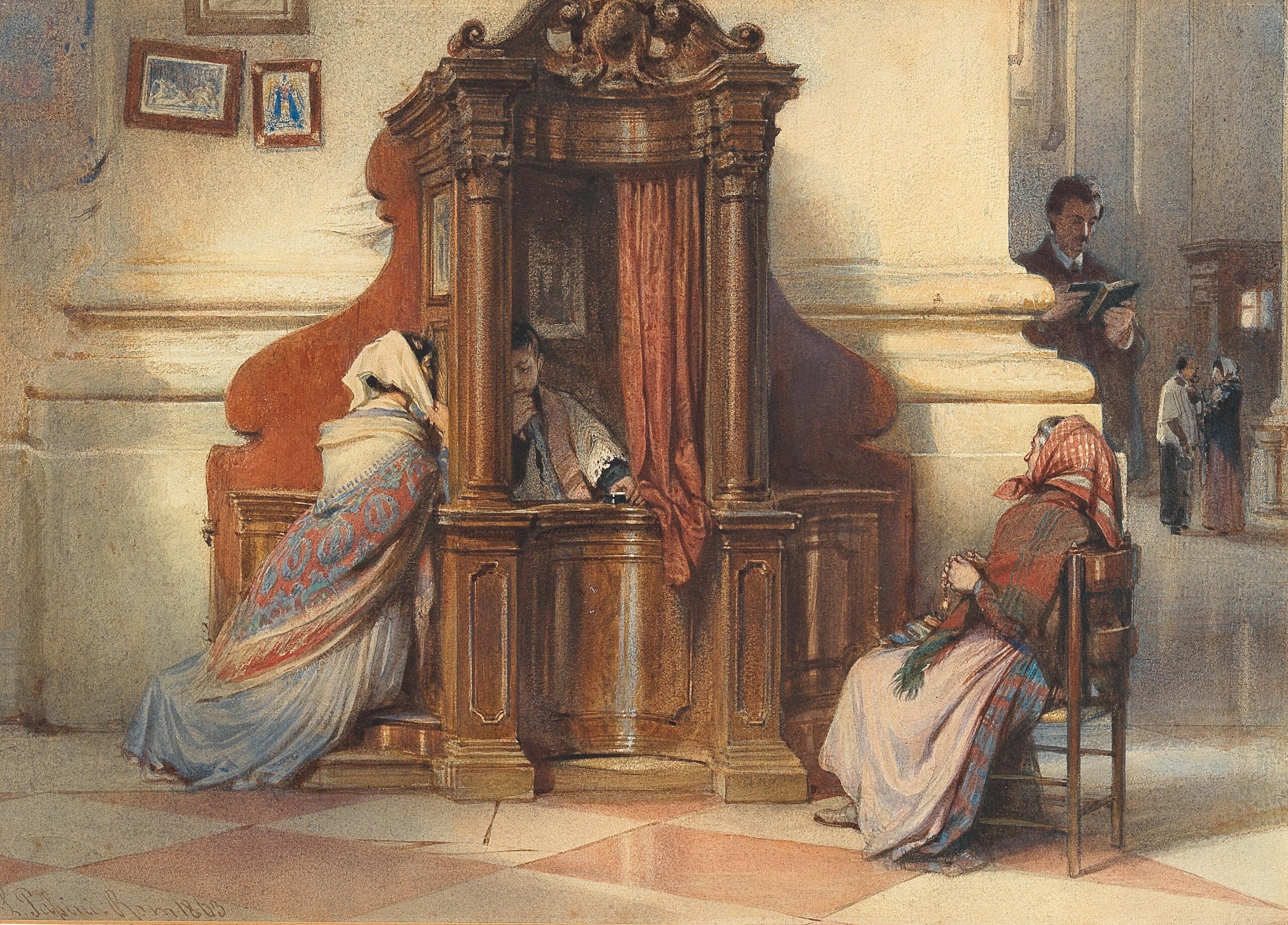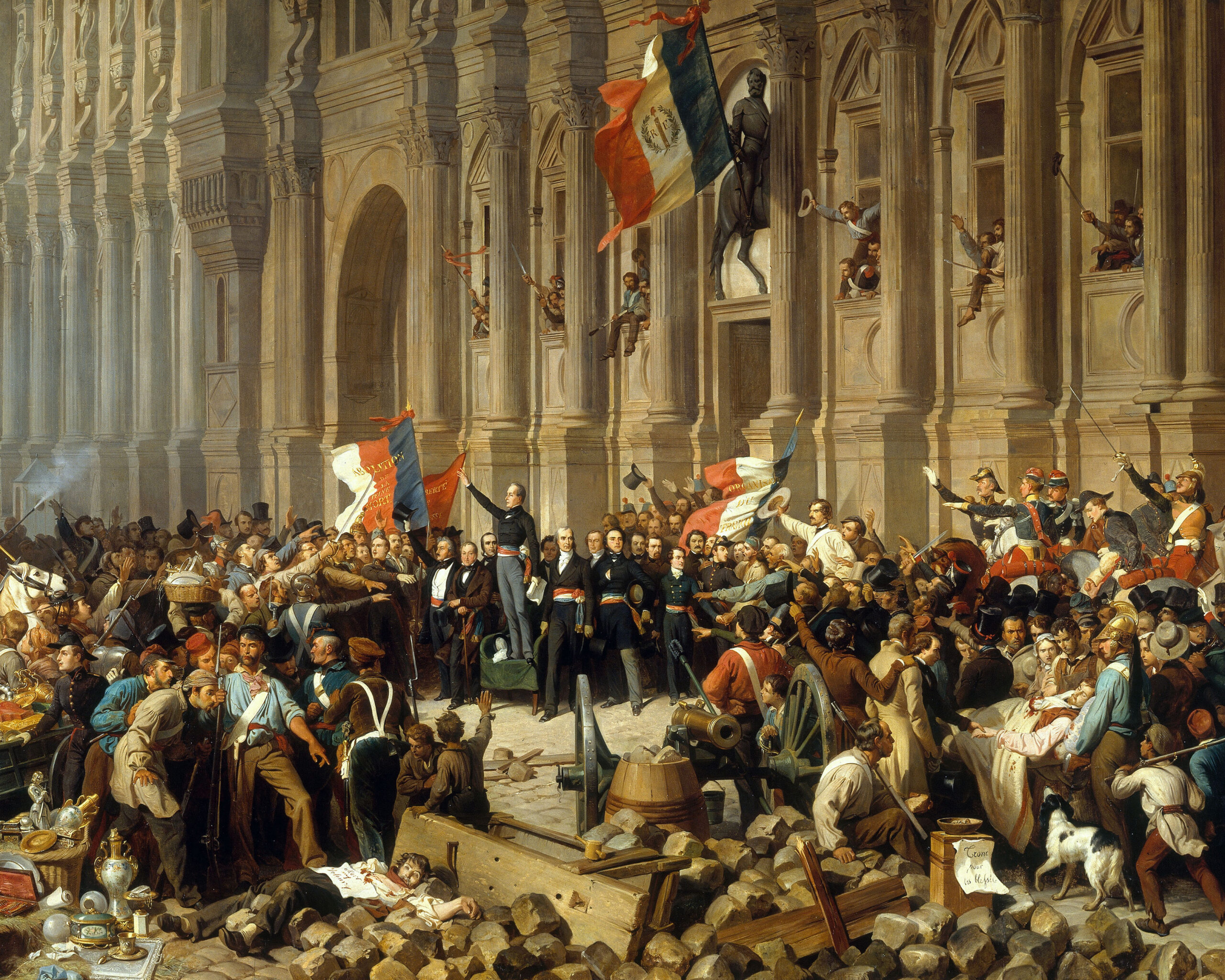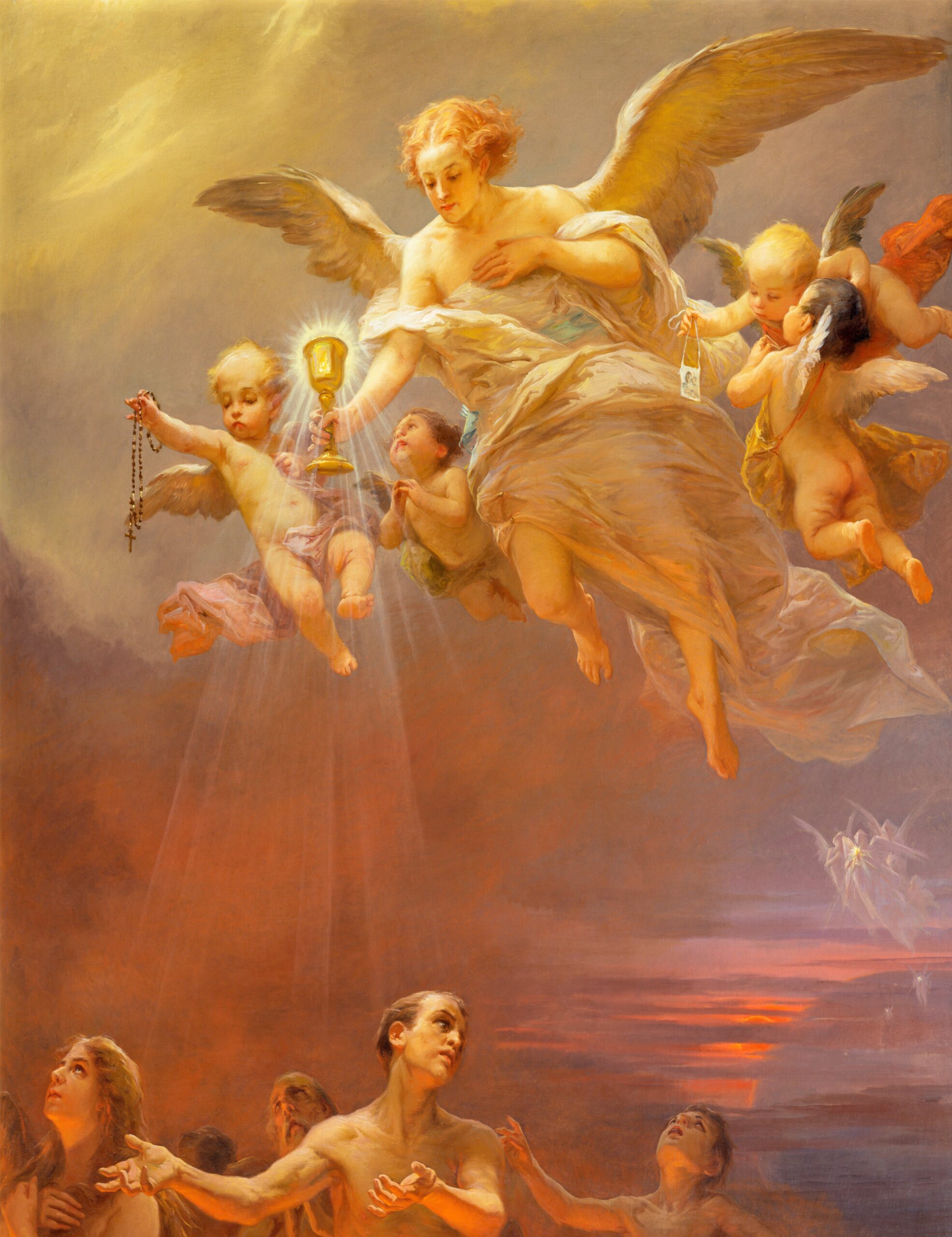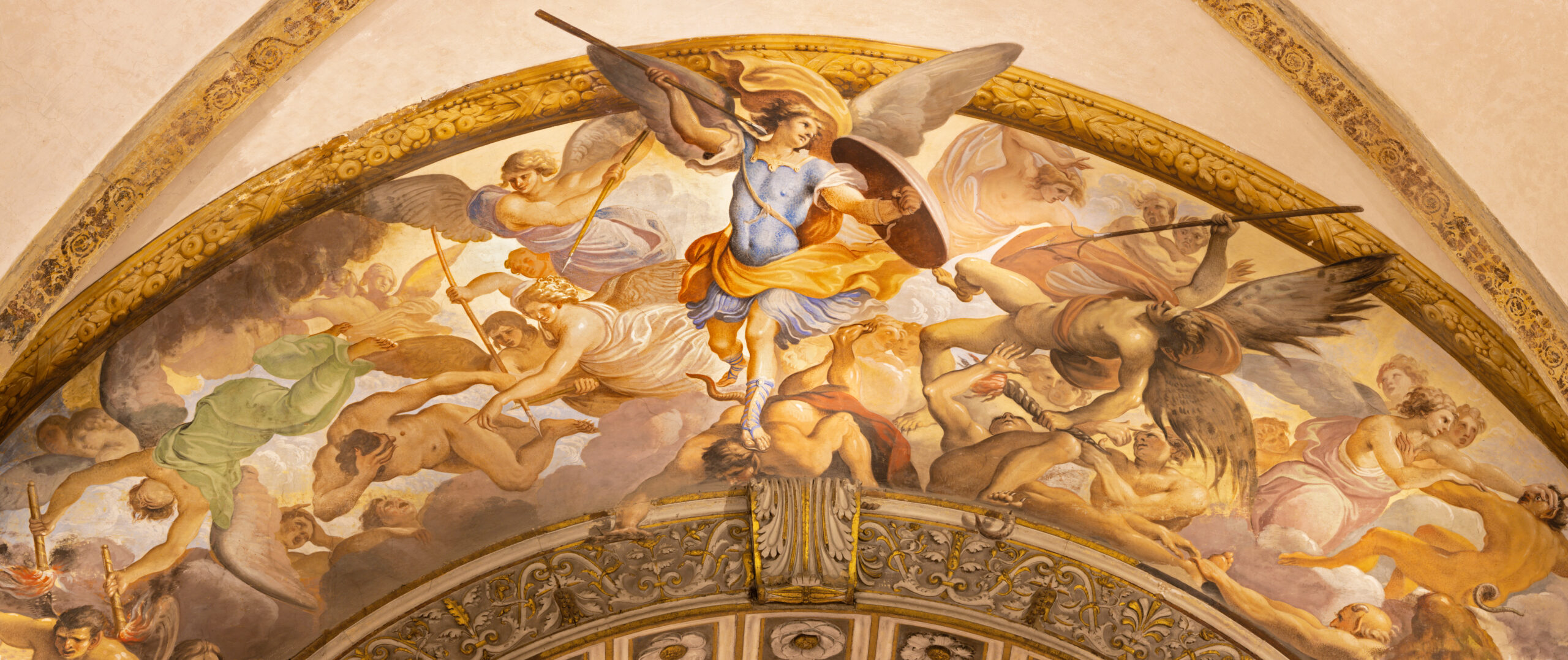Julia Meloni’s new book, The St. Gallen Mafia, is a fascinating work. Rarely do I push through a book in two days, but this time I did.
The research and writing are outstanding. A read of the text and study of the footnotes and bibliography make clear that Meloni seems to have read every book available (many in Italian) on the central figure of Pope Francis and the core figures that comprised the so-called St. Gallen Mafia, namely: Cardinals Carlo Maria Martini, Godfried Danneels, Walter Kasper, Cormac Murphy-O’Connor, and Achille Silvestrini. Meloni’s examination of these characters and the connections she draws from them to Francis is admirably skilled and splendidly executed. It’s also eminently fair.
I do not know Meloni, but I partly expected a book on this provocative subject to contain hyperbole and flashes of anger and more than a few digs and shots at the chief characters—or maybe a better word for this group, the chief plotters. Meloni doesn’t do that. She is charitable, level-headed, and allows the facts to drive the conclusions. She narrates exceptionally well.
There is much to take from this book, and yet also, as with any analysis of Francis, much to leave one scratching one’s head. Francis remains an enigma. It is so hard to know the real Francis, especially where and when the man is leading or being led, or frankly, where and when the man is perhaps deceiving or being deceived by those whom he has surrounded himself with at the Vatican.
Yes, that is a tough thing to say about a pope. But as those familiar with my work on Francis know, I’ve publicly defended him many times, and much more than I’ve been critical of him, which I’ve rarely (if at all) done in print or on talk-radio and TV. My defenses include a 5,000-plus-word piece for Crisis Magazine in March 2019 that still gets attention.
That said, Francis can be maddening. It is so difficult to figure him out, even as we’ve figured out this much: his papacy has wrought confusion and chaos. His friends and foes alike struggle to pin him down and alternately are left pleased and disappointed. It many respects, the ensuing distinct lack of clarity has (to borrow an infamous phrase of Francis) “made a mess” of things.
This book by Julia Meloni brings us closer to figuring out Francis. It does so through her uniquely perceptive lens of the St. Gallen Mafia that plotted (yes, the word seems to fit) to help get him elected pope through the conclave. She pulls it all together, especially the truly remarkable parallels between Francis and Martini and Danneels, which in the course of reading this book left me both intrigued and infuriated.
And yet, with the characteristic confusion we’re frequently left with in dealing with Pope Francis, there’s one particular takeaway from this book that I think is worth calling out right now amid the trail of confusion (yet again) over Francis’s recent meetings with Joe Biden and Nancy Pelosi, which, of course, occurred long after this book by Meloni went to press.
As readers here well know, Francis in October—which, notably, is Respect Life Month in the United States, as recognized by the USCCB—met with both Nancy Pelosi and Joe Biden, who now stand as the two most aggressive and destructive promoters of abortion among U.S. Catholic politicians in history. Francis smilingly met with both “pro-choice” Catholics three weeks apart and on the heels of them finding themselves in controversy with their bishops over whether they should be denied Holy Communion because of their outrageous promotion of abortion. Notably, in the days and weeks leading up to and surrounding these meetings, Francis commendably doubled down in his public excoriation of abortion. He upped his previous references to abortion as akin to “murder,” the “hiring of a hit-man,” as nothing short of “homicide.”
“I have been very clear, it is homicide,” Francis told a group of medical professionals at the Vatican on October 14, a few days after meeting with Pelosi and two weeks before meeting with Biden.
That being the case, surely Francis would draw a line and tell abortion-promoting politicians not to receive the Eucharist, right? Think about it: defending, promoting, and advancing “homicide” ought to be one thing that transgresses the line.
Many Catholics hoped for just that. No doubt, Francis would tell Nancy Pelosi and Joe Biden that their militant advancement of homicide should prohibit them from receiving the Body and Blood of Christ. To do so would be a profanation of the Body and Blood (see 1 Corinthians 11:26).
But that’s not how Francis thinks. In fact, that’s one of the things I think we can glean from Julia Meloni’s treatment. Specifically:
On page 124, Meloni quotes Sandro Magister, one of the many Italian “vaticanistas” she taps, reflecting on Cardinal Bergoglio’s actions regarding Communion in Buenos Aires. The Argentinian cardinal and future pope had “encouraged his priests not to deny Communion to anyone, whether they be married, or cohabiting, or divorced and remarried.”
Meloni quotes an Argentinian priest who justified this attitude by saying that in some “shanty-towns” in Argentina, 90% of the congregation is cohabiting or divorced: “You have to learn to deal with that. Communion for the divorced and remarried is not an issue there. Everyone takes Communion.”
And so, Bergoglio dealt with it by encouraging priests to give the sacrament rather than withhold it.
Of course, these matters are not the same level of moral evil as abortion, which Francis has condemned in the strongest of terms. But even then, Francis views the Eucharist as medicine to be administered to sick and sinning souls. He seems to believe it is better to give it than withhold it.
On page 139, Meloni reminds readers of a really important footnote from Francis in his Evangelii Gaudium, where he revealingly stated that the Eucharist “is not a prize for the perfect, but a powerful medicine and nourishment for the weak.” Meloni here follows with a quote from Cardinal Martini, who she shows to be very much the pre-Francis: “The sacraments are not an instrument of discipline, but rather a help for people in their moments of journey and in the weakness of life.”
Francis is all about promoting mercy. He believes that people need the Eucharist to make themselves better.
Of course, one must counter this by underscoring the Scriptural references and Church teachings on those profaning the Eucharist by refusing to stop their sin. And really, any priest or shepherd, or pope, should follow Jesus’ model of rebuking the sinner and telling him or her to go and sin no more. One must be told to cease the sinful behavior. Once they do that, we must extend forgiveness and bring them back into literal Communion.
Yes, of course, the Eucharist is not a prize for the perfect, and is indeed a powerful medicine and nourishment for the weak. But the weak must be told that they need that medicine because they are sick from a certain ailment—such as militantly promoting abortion. Consider if Biden and Pelosi had said to Francis, “Holy Father, I am weak, I am sinning by advancing abortion. Forgive me, and please give me the Eucharist to help make me better because I am sick from this.” Had either shown that sort of contrition, then viewing the Eucharist as the medicine they need would be apt.
Did Francis have an exchange like that with Biden and Pelosi? Well, we don’t know his side of what happened, even as Biden and Pelosi clearly gave no indication that he rebuked their sin of aggressively advancing abortion. In Biden’s case, quite the contrary. Biden told the press: “We just talked about the fact that he was happy I was a good Catholic and I should keep receiving Communion.” The Vatican declined to comment on Biden’s statement.
But there’s more to it.
Bill Donohue of the Catholic League persuasively picked apart Biden’s rendering of his meeting with Francis:
Many Catholics were dismayed, if not furious, with news reports indicating that Pope Francis told President Biden on October 29 that he was “a good Catholic” and “should keep receiving Communion.” The Vatican has neither confirmed nor denied this account. As I said when the news broke, we have good reasons to be skeptical of Biden’s rendition.
After taking another look at this issue, examining the exact words used by Biden—not relying on media interpretations of what he said—my skepticism is growing. The president was asked about this matter at two press conferences: one on October 29, and the other on October 31.
On October 29, Biden was asked, “Mr. President, did the issue of abortion come up at all?” The first words out of his mouth were, “No, it didn’t.” Then he contradicted himself saying, “It came up.” So which account is true?
After Biden said, “It came up,” he then said what the media widely reported. “We just talked about the fact that he was happy I was a good Catholic and I should keep receiving Communion.”
If the first version is right—abortion never came up for discussion—then it seems peculiar, to say the least, for the pope to tell him he should “keep receiving Communion.”
Given other examples and Biden’s long track record, Donohue concludes: “It is entirely possible that Biden is lying.”
Or at the least, Biden seemed confused or was saying something different. Look at how the Catholic News Agency (accurately) reported Biden’s assessment of the meeting: “Asked whether the issue came up, the president replied: ‘No, it didn’t. It came up—we just talked about the fact that he was happy I was a good Catholic and I should keep receiving Communion.’” (Click here to watch the Biden statement.)
Donohue is right about Biden. But he may be wrong in what he’s expecting from Francis. If the Francis who met with Biden, and with Nancy Pelosi, is indeed the Francis that Julia Meloni examines, then he’s a Francis who would indeed not only not deny the Eucharist to the likes of Biden and Pelosi but would tell them to keep receiving as “medicine.”
This is just one of many insights we can take from Julia Meloni’s superb new book on Francis and the St. Gallen Mafia that helped give Francis to the world. And aside from specifics like this, this is a book overall that Francis fretters and watchers alike have been waiting for.
Many of us have heard about the enigmatic St. Gallen Mafia. Here at last is an eminently readable and reliably researched account that can benefit us all.

